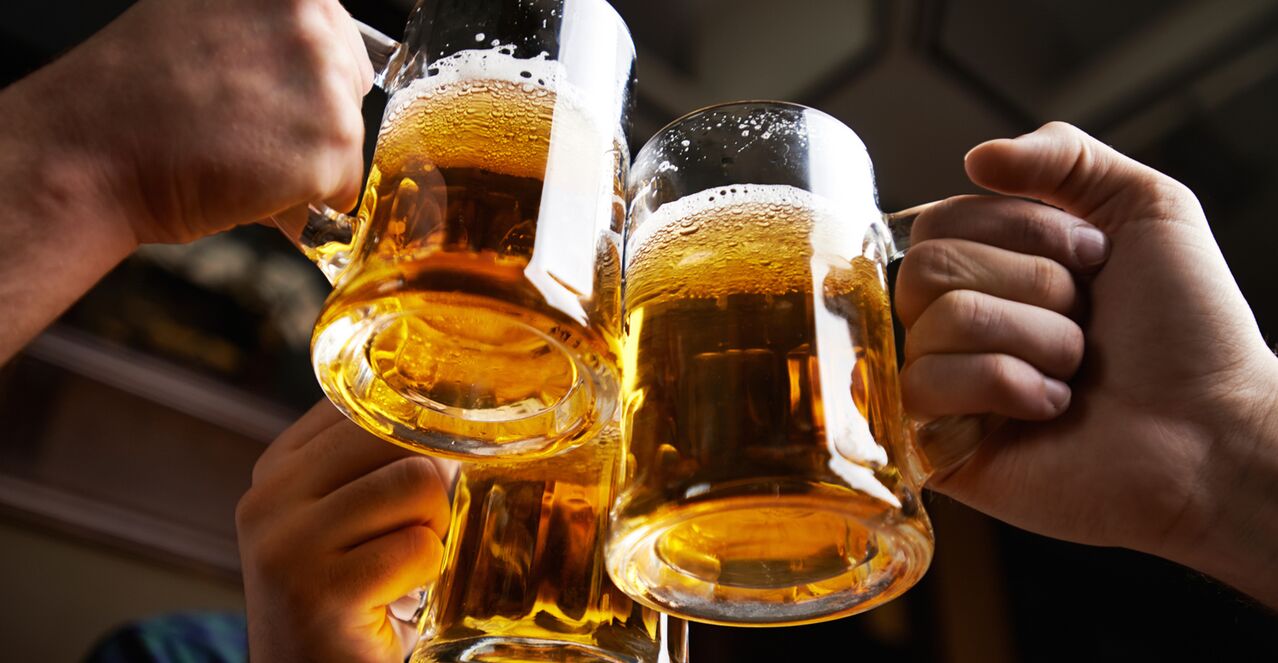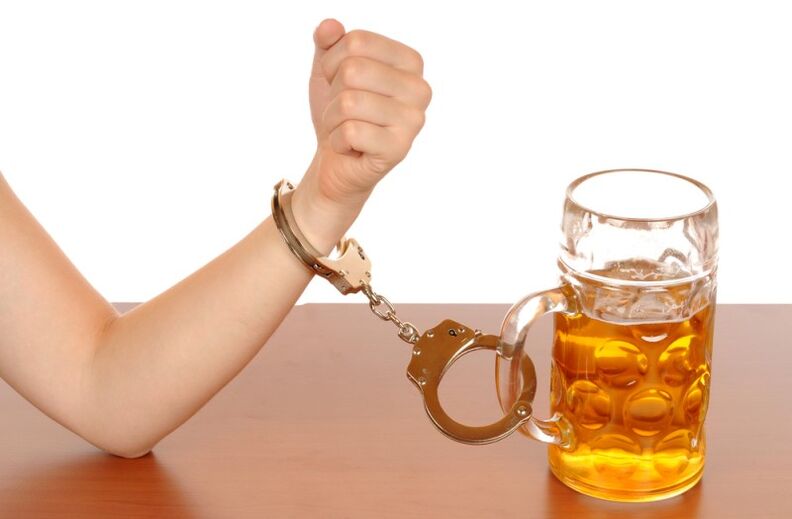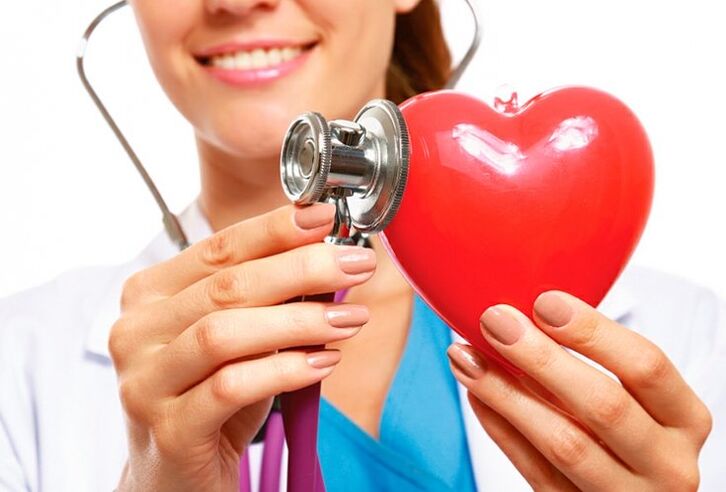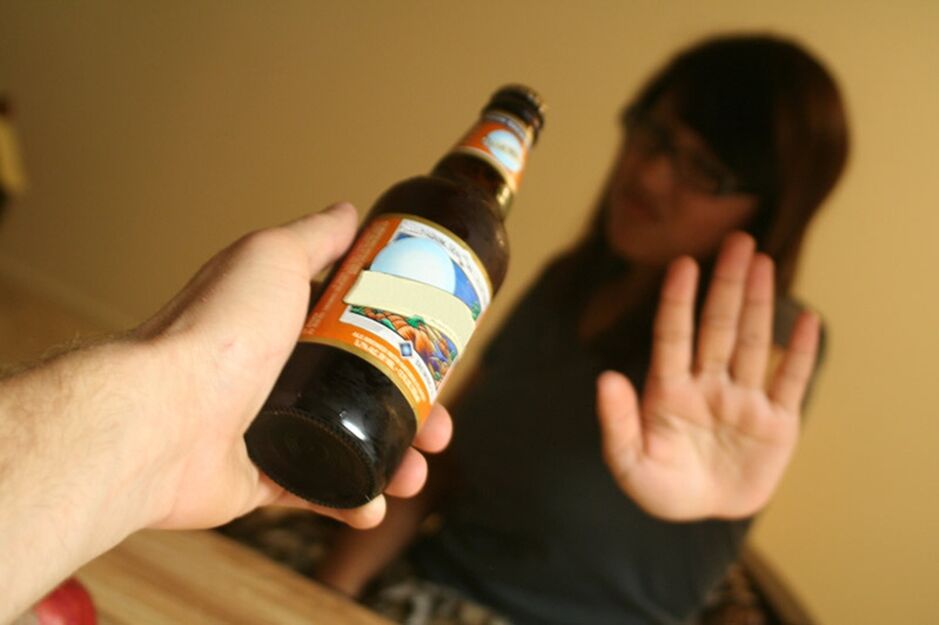Regular consumption of any alcoholic beverage will not last long without consequences. So-called beer alcoholism develops much more slowly than strong alcohol dependence, which is its particular danger.

What's wrong with beer
For the development of alcoholism, the type of alcohol does not matter. The disease forms when drinking wine, vodka, moonshine, alcoholic cocktails, and beer. The only thing low-alcohol beverages affect is addiction rates. In this regard, beer is considered one of the most dangerous drinks. that's why.
- The alcohol content is between 4% and 14%, which is not a cause for concern for most people. In fact, alcohol is also present in harmless beverages such as kvass or kefir.
- Beer is delicious. Unlike vodka or moonshine, which has to be "pushed" in, the intoxicating liquid can be tasted as much as you want, and you often want to repeat the high.
- In terms of popularity, beer ranks first among almost all demographics: men, women and teens drink it. In OCD ads, it is presented as a regular soft drink.
- In addition to alcohol, most varieties contain many substances that negatively affect the endocrine and cardiovascular systems.
If we consider the above facts in more detail, it is clear that this drink does not have any safety profile. Drinking beer regularly is not condemned by society. On the contrary, there are arguments to support it. It is recommended to supplement for vitamin deficiencies or to improve digestion. For this reason, many people don't have a psychological stop signal, for example, when they start abusing alcohol. Drinking vodka is considered shameful and unhealthy, and drinking beer every day is just a form of relaxation. Some people believe that there is no danger in giving children "health promotion".
Signs and Traits of Beer Addiction
The usual arithmetic will allow you to determine what threatens a regular beer binge. In 1 liter of pale beer, 40 ml of pure ethanol, in strong varieties - 120-140 ml. In the latter case, men doubled their allowable daily alcohol intake. And if you consider that 1 liter is only drunk "for overclocking", and you don't count the amount, then the consequences of drinking beer are obvious.

The addiction went smoothly from a common hobby to a psychological dependence, and the abuser was quite confident in his own well-being, and instead of putting himself on the same level as the alcoholic, he continued to drink beer every day. You can understand that a disease is developing when:
- The impatience and pleasant anticipation of the upcoming beer party, for whom you can put off less important things;
- Drunkenness comes quickly and lasts a long time;
- Drink at least 1. 5 liters per day, the maximum is unknown;
- Days when you can't get regular beer for some reason, feel irritable, have a bad mood, and only have a few cans or new bottles to return;
- Pale beer is like water, you have to drink the strongest;
- People around and mirrors begin to notice changes in appearance: puffiness of the face, swelling of the body, bags under the eyes, pale earthy skin;
- Shortness of breath, chest pain, and rapid pulse more often than usual;
- After drinking beer the next morning, I had a headache and wanted to drink more to "get well".
Even one sign in the context of an everyday "hobby" indicates a beer addiction, the symptoms of which will be more intense in the future.
Anaesthetists don't recognize any specificity of alcohol disease based on the type of drink they prefer, but they agree that beer addiction can be very insidious. It is difficult to identify it in the first stage because there are no significant changes in lifestyle and human health. For example, with the husband drinking beer every day, the wife may not notice any external signs of dependence at all.
Beer drinking in men is often disguised as a physical illness. Often, heart problems, headaches and irritability are mistaken for accumulated fatigue.
Health effects of beer abuse
The consequences of beer binge drinking are less intellectual, moral, and personal. Unlike people who drink hard alcohol every day, alcoholics lose professional skills less often and maintain appropriate behavior and judgment. This is a characteristic of weak alcoholic beverages: the degeneration of personality develops, but very slowly.

Another danger that awaits beer lovers is the damage to physical health. As a result of heavy daily alcohol consumption, serious chronic diseases can develop:
- Cardiac dystrophy;
- angina pectoris;
- coronary artery disease;
- gastritis;
- Jade;
- fatty liver disease;
- cirrhosis of the liver;
- Nervous system disease.
Fizzy drinks put a lot of pressure on the kidneys to combine and remove minerals and vitamins that the body needs: potassium, calcium, ascorbic acid, riboflavin. As a result, the work of all internal organs is disrupted. The persistent presence of acetaldehyde in the blood can cause swelling, dehydration, and poison the liver and brain.
It is important that beer contains high amounts of so-called phytoestrogens. Uncontrolled, these substances can cause hormonal imbalances in both men and women, leading to reproductive dysfunction, increased risk of blood clots, and elevated cholesterol levels.
But the main danger of beer binge drinking is uncontrolled intoxication. The pleasure of the drink's taste overwhelms the effects of ethanol, and the new euphoria removes inhibitions, modifies the problem, and prompts a few more glasses or bottles. When drinking a beer, few would think of him coming over. Additionally, addicts often switch from weak alcohol to abusing vodka or other "fuels. "
Battling Beer Alcoholism
How to deal with beer alcoholism depends on the severity and overall condition of the disease. Given that such abuse is not always accompanied by a loss of volitional qualities and mental impairment, it makes sense that the addict does all the work alone. There is no coding of beer alcoholism as a separate specific pathology. Sewing drug torpedoes under the skin or hypnosis may not work.

As with other types of addiction, patients need to recognize the existing situation and need to change it. Some can do it themselves, some need signs outside. If there is no physical dependence on ethanol - and no beer does not lead to poor health, heart attack - you can do this without the help of an anesthesiologist.
A rough action plan.
- Medicine does not recognize "low-dose" treatments for alcoholism. There is no point in recommending that someone addicted to beer drink one bottle a day. This is self-deception, and after a while the problem comes back. Only complete denial can help. You need to act on the "last time was yesterday" principle. This is the most difficult step, but it is also necessary.
- After being rejected, you should analyze what annoys you the most. Boredom, lots of free time, boring TV, work stress, arguments with friends. Often, problems solved by drinking beer appear immediately. They need to be identified and start addressing right away: stop watching TV, fix things, go for a walk, start communicating with forgotten friends, spend more time with work, kids, help with chores.
- Finding things you enjoy and enjoy doing can ease boredom and irritability. Hobbies, new pets, sports, music, learning a foreign language, mastering a new career. Anything that sparks genuine interest, requires effort, but doesn't leave an inner compulsion. This is the most effective way to deal with psychological addictions.
- With an irresistible urge to drink beer, you can give your body an alternative: prepare juice, green tea, lemonade. First, non-alcoholic beers are appropriate. At the same time, after 2-3 drinks, it is urgent to turn your attention to something urgent. The brain will get the necessary discharge, and the psychological stress will disappear. If we're not talking about binge drinking, but just a bad habit, you can drastically reduce your beer consumption - no more than 0. 5 liters 1-2 times a week, preferably even less.
Lack of a good mood and interest in life, frequent dizziness, inability to self-treat beer alcoholism are reasons to see a neurologist or endocrinologist because of the possibility of metabolic disturbances or central damage to the nervous system. In such cases, doctors may prescribe laboratory blood tests, Doppler imaging, and MRI of the brain. If signs of disease are detected, it is necessary to undergo a course of treatment with hormones or nootropic drugs.
Prevention of beer binge drinking is to eliminate the use of alcohol as entertainment, to fight boredom, to relax, and to solve problems. Like other alcoholic beverages, beer is acceptable on the holiday table, but you can't make it a constant companion in life or quench your thirst.
























